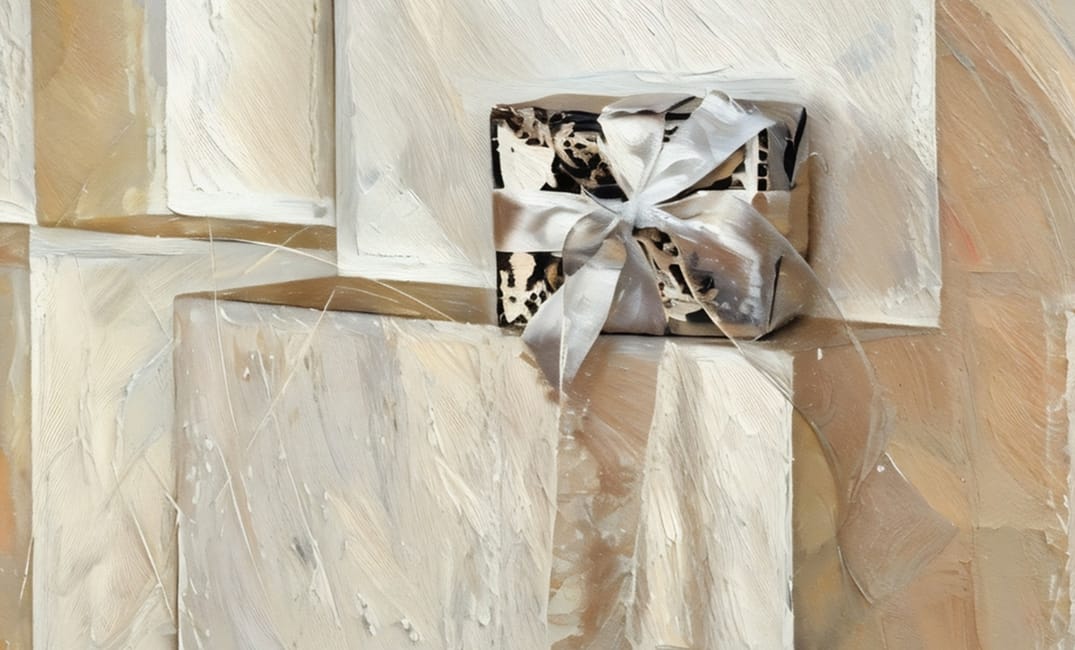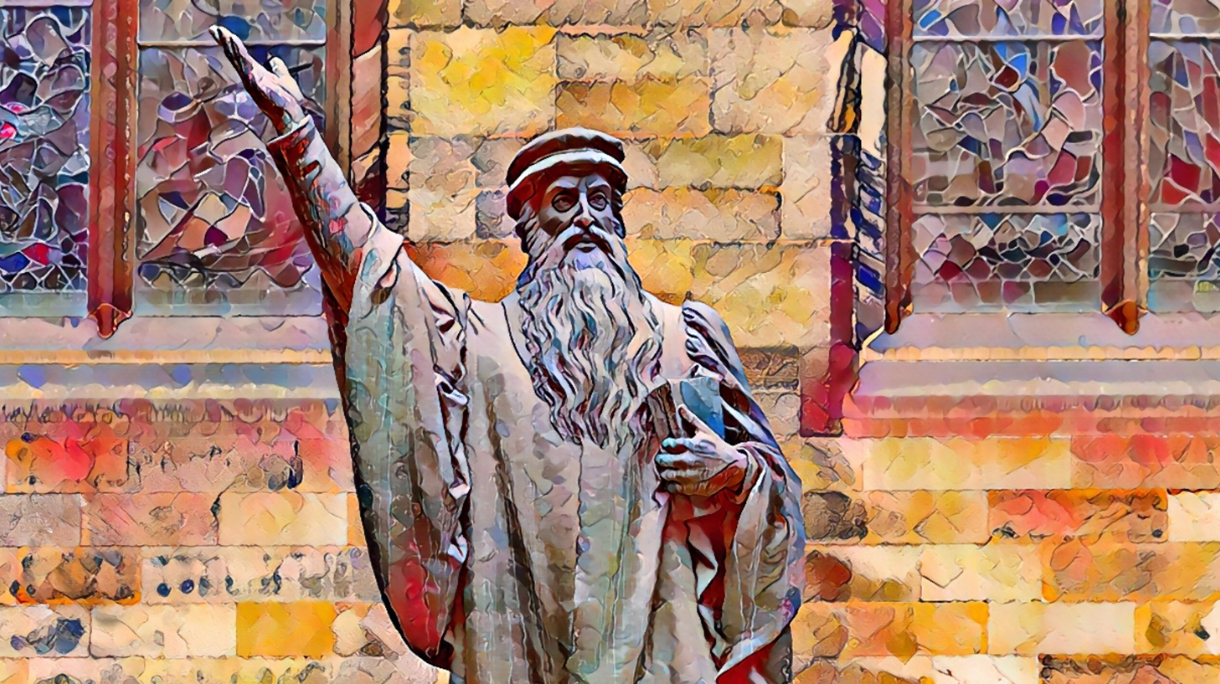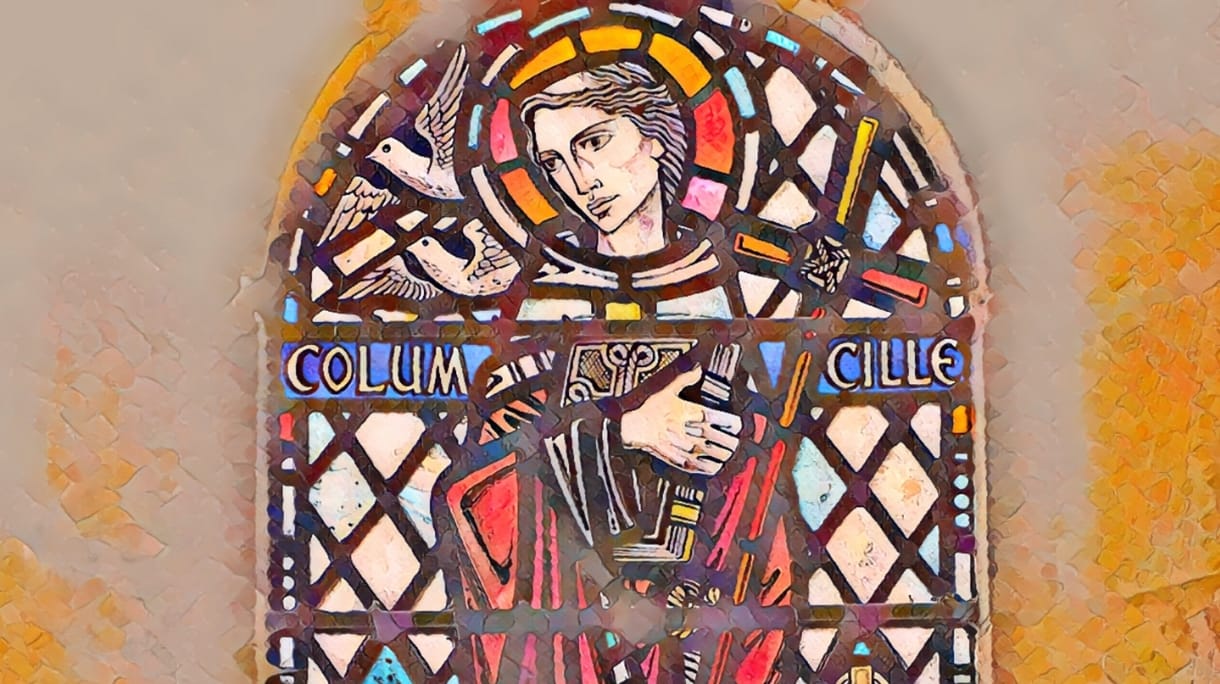An evening service, based on 1 Corinthians 12.
Welcome
Welcome. This evening, we will reflect on a passage from Paul's first letter to the
Corinthians. We will listen to the Word of God, reflect in silence and in conversation, offer prayer, and take a moment to rest quietly in God's presence.
To start, I would like to read you a poem I recently discovered, by Susan Noyes Anderson, called The Unclaimed Gift:
I gave my friend a priceless gift.
She did not look inside.
She did not lift the lid to find
what treasures it might hide.
Instead, she praised the ribbon and
declared the wrapping fine.
The colour and the paper and
the bow were called divine.
She thanked me with exceeding grace
and, quite pleased with herself,
she carried it into her room
and placed it on a shelf.
“Your gift I’ll open one day soon,”
she promised with a smile,
but first I’ll just enjoy its beauty
for a little while.
I visited her frequently;
each day I hoped so see
some evidence that she’d unwrapped
this precious gift from me.
But there it sat, upon the shelf,
collecting dust each day.
I could not bear to look at it
and finally stayed away.
Time passed, and she forgot my gift.
Unclaimed, its treasures hide.
A gift is but an empty box,
if no one looks inside.
The Spirit is a gift from God
to dwell within our hearts.
Receiving it means opening
each gift that it imparts.
If we confine the Spirit to
a place on our heart’s shelves,
we render God’s gift empty and
are left to bless ourselves.
Tonight we’ve gathered to worship the God who gives us the best gifts. The poem we heard paints a picture of what can happen when a gift is left unopened and unused. In 1 Corinthians 12, Paul reminds us that the Holy Spirit gives each of us different gifts, not just to admire, but to use for the good of others and to help the whole church grow. So as we begin our time together, let’s not leave God’s gifts sitting on the shelf. Let’s open our hearts and be ready to use what He’s given us.
Hymn 192: All my hope on God is founded
Author: Robert Bridges; based on Joachim Neander
1 Corinthians 12 (read once, invite thoughts, and then read again)
Prayer
Let us pray with these short thoughts inspired by Psalm 16, and please respond after each sentence: “Thank you, Lord.”
Leader: Lord, every good gift comes from You.
All: Thank You, Lord.
Leader: You have placed gifts in our hands to use for others.
All: Thank You, Lord.
Leader: You guide us along pleasant paths, showing us where to share Your love.
All: Thank You, Lord.
Leader: Help us not leave Your gifts unopened, but use them fully in Your service.
All: Thank You, Lord.
Let us now pray together:
Lord God, we give You thanks for the gifts You pour into our lives:
the talents and passions You plant within us,
the voices and perspectives You scatter among Your people,
the Spirit who stirs courage, creativity, and care in each heart.
Forgive us when we admire Your gifts from a distance,
but leave them unopened on the shelf;
when we hoard our talents instead of offering them for the common good;
when we fail to notice the gifts of others around us.
We pray for our friends and family,
that the gifts You have placed in their hearts may be used for blessing and encouragement,
and that we may support and celebrate them as they do so.
We pray for our communities,
for schools, workplaces, and neighbourhoods,
that the Spirit’s gifts may flow freely,
bringing understanding, compassion, and practical help to those in need.
We lift up those around us and beyond,
for those in positions of leadership and policy-making,
for people affected by welfare cuts, inequality, and injustice,
and for all who work for peace and the common good.
We remember those around the world,
for countries experiencing conflict, famine, or oppression,
for refugees and displaced people,
and for communities seeking hope and restoration.
Give us eyes to see, and hands to act,
so that every gift may be unwrapped and used,
every voice may be heard,
and every life may bear witness to Your love.
Make us a people who rejoice in difference,
who work together in humility and boldness,
who bring our gifts into the world with joy and generosity,
so that Your church may shine as a beacon of hope,
and Your kingdom may come in every corner of our lives.
Amen.
We now enter a minute of silent contemplation. Let go of words and thoughts. Rest in God's presence. If your mind wanders, gently return your focus to a word or phrase from the reading, such as "There are different kinds of gifts," or "I will show you the most excellent way."
Hymn 590: Holy Spirit, gift bestower
Author: Catherine Anne Williams
Let us close with saying the grace together:
The grace of our Lord Jesus Christ, the love of God and the fellowship of the
Holy Spirit be with us all now and evermore. Amen.
Useful notes for contemplation:
- In By Way of the Heart, Mark Oakley notes that Paul says that his weaknesses were his strengths because that’s where God helped him and pushed him most. “When I am weak, then I am strong.” Where have we found God’s strength showing up in our own weaknesses?
- Paul links the presence of the Spirit with spiritual gifts, using two Greek words in 1 Corinthians 12. In verse 1 he says pneumatika — things of the Spirit — and in verse 4 he uses charismata — gifts of grace, the works of the Spirit in us. These gifts aren’t for show, but for the building up of the church and helping us share God’s love in real ways. (Source: The Light of Truth and Fire of Love by Gary D. Badcock) What has God shown us about our gifts and how we should use them in the church?
- What what make some members of our church feel useless or envious of other parts of the body? According to Paul, how can we make every part of the body feel special?
- What can we do to help others in our church of discover their giftedness?
- How would we like to develop and exercise our spiritual gifts?
- What particular problem in the Corinthian church may have led Paul to offer the “test” in verse 3?
- What clue does Paul’s test give us about the ultimate goal of spiritual gifts?
Pagan Background of the Corinthians
The primary problem leading Paul to provide the test in 1 Corinthians 12:3 was the confusion and misapplication of spiritual gifts in the Corinthian church, due to the recent Corinthian history of paganism. Paul was worried that the Corinthians lacked the proper understanding to discern true divine activity from false spiritual expressions, prompting Paul to provide a definitive test based on confessing Jesus as Lord to distinguish true believers from false prophets and spirits.
This "test of authenticity" confirms that any genuine expression of the Holy Spirit will point to Jesus and His Lordship, fostering unity and service within the church for its common good, rather than division or self-promotion.
According to Paul's teaching in this passage, every part of the body (representing believers) feels special because each part has a unique and indispensable function for the body's overall health and purpose, as God Himself designed them to be. Believers should not think themselves insignificant or useless but rather see themselves as vital and needed parts, just as "the eye cannot say to the hand, 'I don't need you!'".
N.B. Prayer inspired by A Candle of Hope in a Divided World, by Brian Woodcock, and The Corinthian Sign by Ian M. Fraser in 50 New Prayers from the Iona Community, selected by Neil Paynter.








Comments